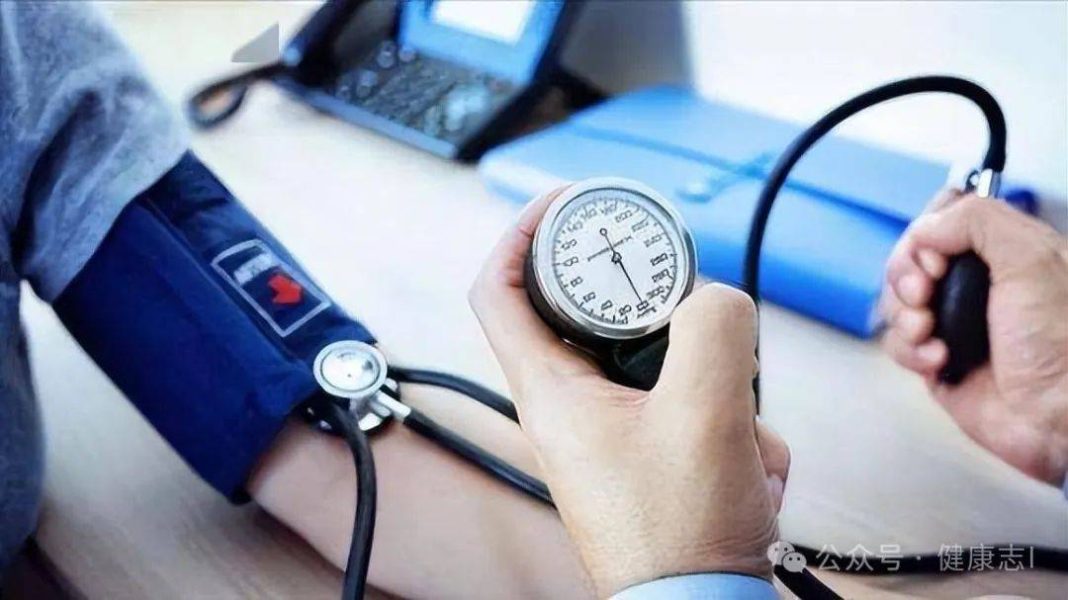According to statistics, China adds 10 million new hypertensive patients every year, a number that cannot be underestimated. Another study also indicates that 60 years old is the “watershed” for hypertension, with a 50% incidence rate of hypertension in people over 60, which is why many middle-aged and elderly people are particularly concerned about their blood pressure.
Causes of hypertension include genetic factors, especially if there is a family history of hypertension among direct relatives, the incidence rate will be higher. In addition, long-term mental stress, excessive body fat content, frequent smoking, etc., can all cause high blood pressure, leading to the occurrence of hypertension.
01
Early Signs of Hypertension
1. Sleep Disorders
Hypertension can cause sustained activity of the sympathetic nervous system and the cerebral cortex, increased secretion of excitatory neurotransmitters, resulting in insomnia. Therefore, one of the early signs of hypertension is sleep disorders. If there are symptoms of difficulty falling asleep and insomnia without any reason, further examination is needed to determine if it is caused by high blood pressure.
2. Dizziness
This severe dizziness often occurs suddenly, with a sense of rotation and movement when looking at external objects. Depending on the patient’s condition, the duration of symptoms may vary, it could be temporary or long-term, some patients may also experience symptoms such as nausea or tinnitus.
3. Chest Tightness
Unable to catch one’s breath for a moment, feeling very uncomfortable, many people experience symptoms of arrhythmia. Hypertension often leads to atrial enlargement, along with a halt in height, causing physical fatigue. This situation is very dangerous and requires medical attention.
4. Tinnitus
When blood pressure rises, it typically causes local blood circulation disorders. When this occurs around the ears, it can easily lead to tinnitus. Furthermore, after blood pressure rises, the heart needs to overcome increased peripheral blood resistance to pump blood, which may reduce the output of blood and cause reduced blood flow around the ears, resulting in tinnitus.
02
The “Root Cause” of Hypertension Is Not Associated with Alcohol Consumption, Doctors Say: Eat Less If Possible
1. Greasy Foods
Common greasy foods in daily life include braised pork, grilled meat, and fried foods, all of which are made with high cholesterol. Hypertensive patients must control their consumption of these foods.
Although these foods taste good and satisfy people’s cravings, hypertensive patients who often consume high-fat foods may make their blood thicker, leading to lipid and other related issues.
2. High-Sugar Foods
Many people also enjoy eating sweet foods, which taste particularly delicious. However, high-sugar foods can lead to rapid entry of sodium ions into cells, leading to excessive sodium in the body, resulting in hypertension.
High-sugar foods can also have a significant impact on insulin levels, triggering the sympathetic nervous system, causing a faster heartbeat and increased blood pressure.
3. Pickled Vegetables
A high-salt diet is one of the causes of hypertension. If hypertensive patients consume too many pickled vegetables on a regular basis, it can lead to an increase in sodium chloride, causing water and sodium retention issues, raising blood pressure, which is particularly detrimental for the prevention and treatment of hypertension.
Hypertensive patients are advised to consume fewer pickled vegetables in daily life. In addition, other pickled foods should also be consumed sparingly. It is advisable to focus on a light diet, which is key to stabilizing blood pressure.
4. Spicy Foods
The capsaicin in chili peppers stimulates our stomach, increases appetite, and makes many people enjoy eating spicy food. However, individuals with high blood pressure should not consume too much spicy food because chili peppers can not only stimulate the stomach but also the sympathetic nervous system in the body.
This abnormal excitement of the nervous system can cause sudden constriction of blood vessels, leading to an increase in blood pressure. Moreover, consuming spicy food can not only injure the digestive system but also increase the risk of constipation, so hypertension patients should consume spicy food sparingly.
03
Eat More of These 4 Items to Help Lower Blood Pressure, Give Them a Try!
1. Black Fungus
Black fungus is a common food in daily life, rich in nutrients. Black fungus contains abundant proteins, fats, minerals, and other trace elements, which can provide essential nutrients for our body when consumed regularly.
It can also help the body eliminate toxins and waste, which is very beneficial for maintaining good health. Moreover, regular consumption also helps prevent the occurrence of hypertension, thus stabilizing blood pressure.
2. Orange Juice
Vitamin C in orange juice can boost immunity. Doctors recommend people with slightly elevated blood pressure to drink two cups of orange juice daily to help lower blood pressure. Orange juice contains hesperidin, vitamin C, and other antioxidants, which can slow down free radical damage to blood vessels;
Furthermore, potassium can lower blood pressure. However, before consuming orange juice, consultation with a doctor is necessary to avoid possible interactions with some medications that may affect their effectiveness.
3. Bitter Melon
Bitter melon has a bitter and cold nature, is associated with the stomach meridian, and has the function of clearing heat and detoxifying. Bitter melon contains bitter melon saponins, which have similar effects to insulin.
It also stimulates insulin release, reduces insulin resistance, lowers triglycerides, and low-density lipoprotein cholesterol levels, reduces arteriosclerosis, thereby reducing the occurrence of hypertension.
4. Kiwi
A study showed that consuming kiwi daily can lower blood pressure in mild hypertensive patients. Researchers compared the effects of apples and kiwi on mild hypertensive patients.
It was found that within the same period, eating three kiwis a day for 8 weeks significantly reduced systolic and diastolic pressure compared to eating an apple daily. Researchers speculate that active substances in kiwi play a role in this effect.
Diet therapy is a very good way to regulate health. It is recommended to increase aerobic exercise, which can help restore normal blood pressure values. Also, try to maintain stable emotions in daily life, as a good mood also contributes to blood pressure control.


